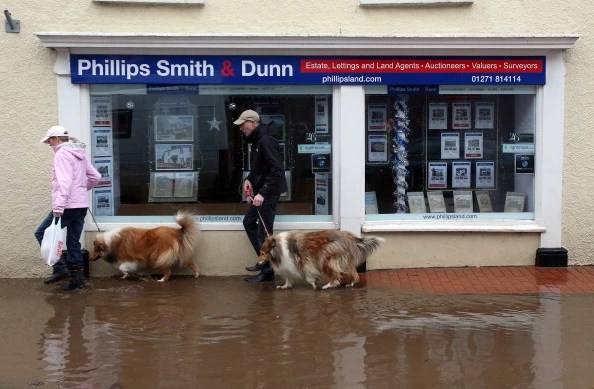Explainer: Our misconceptions about housing are so ingrained that councils are blocking new flats for fears of floods in 80 years

In the latest example of how far the tensions in housing can reach, North Devon Council just refused to approve new flats because they might be victims of flooding in 2105. Which is in more than eighty years.
The flats wouldn’t even need to be built; we’re talking about empty floors above a former hairdresser’s shop which currently sit empty and could be reconverted into homes.
The council says they’re simply following the government’s advice on taking into account the risks of climate change over the next century when building new homes. Other councils up and down the country similarly blocked new developments on the basis of the risk of floods in more than eighty years.
New homes always need to be built with safety in mind. We have plenty of painful examples that show what happens when safety is forgotten. Some of them are part of a difficult British history, like Grenfell, others are to be found around the world, like the earthquake in Turkey earlier this year. Whether it’s a man-made disaster or natural risk, we need to make sure all our homes are safe for the future and resilient.
But we also need to be realistic. In the North Devon case, the Environment Agency had approved the planning project. The town of Barnstaple, where the flats would have been located, suffers from severe housing shortages. If you look at all these factors together, coupling them with the fact that a life-threatening flood in this context looks unlikely, the scales tip in favour of the development.
And what about all the basement flats in London then? Should we stop renting them out because they’re the first victims in the event of a flood in the capital? Perhaps a better strategy is instead ensuring we have an efficient infrastructure in place that can divert the water when a flood is coming.
The North Devon MP Selaine Saxby has taken this case to Housing Secretary Michael Gove, who – if he can be bothered to intervene – might be the one having the final say on the matter. It will be an instrumental case: if the project doesn’t go ahead, it will provide a blueprint for many empty shops and houses up and down the country.
We need to find a way to make space for new housing, otherwise we’ll never get out of this housing crisis. It’s completely possible to approve planning projects that don’t destroy the environment, upset local residents or prove unsafe. But something has to give – and the risk of residents being stranded “for more than six hours” in the event of flooding in 80 years’ time might have to be that something.